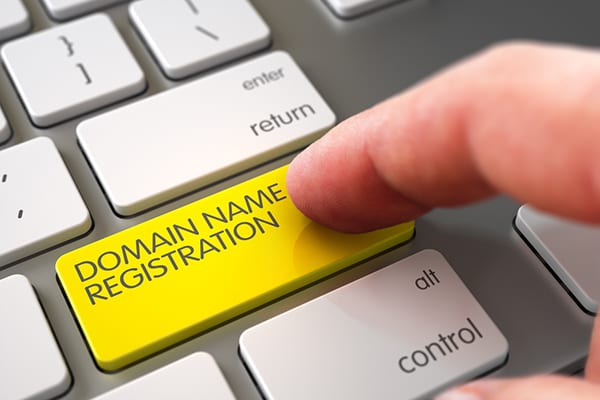Your 10 Point Checklist to Starting an Ecommerce Business From Scratch
Thinking about setting up an Ecommerce business? Well, it is about time. It is an industry that has transformed our purchasing habits in the digital world. For entrepreneurs, the current state of the ecommerce industry offers significant potential for profit.
As far as profit generation is concerned, that is the easy part. The hard part is getting started. We have seen many entrepreneurs quit because they didn’t have the pre-requisite knowledge of setting up an ecommerce business.
No need to worry. After reading through this ten-point checklist that details all the essential steps involved in starting an e-commerce business from scratch, you will be better equipped to start ecommerce business.
1. Deciding on a niche

You won’t go far ahead with creating an online store if you don’t have a niche for your business. You might want to sell everything and anything, but with the current competition, it is highly unlikely that this business model will succeed.
Your e commerce startups could be anything from selling smartphone accessories, to even pottery products. What are you most passionate about? If you are aware of the e-commerce industry, you can also structure your niche for a multi-vendor setup.
Word of Advice: Don’t go into all the talk about what’s the “most profitable” niche. It might work for some, but might not for you.
2. It starts with a name
After deciding on a niche, the next thing you should do is pick a unique business name.
It is important to note that a business name should be yours, and no one else should be using it. Corporate name searches can help you decide your business name.
3. Registering domain name

In the best-case scenario, you would want a domain similar to your business. If it is unavailable, however, you can always choose the next closest URL. Just make sure that it easy to spell and without hyphens.
4. Designing and developing your store
The biggest business expense you have to incur comes in the form of store design and development. It is best-practice to let an expert work on it.
There are many companies offering e-commerce development services that can also design your e-commerce website. It should focus on user-experience, has to be visually appealing, and functional.
You can go the easier way—get a ready-made eCommerce solution for B2C or B2B and start your website on it in no time.
5. Structuring the business

When it comes to structuring your business, you have several options. You can structure it as a sole proprietorship, a partnership, an LLC, or a corporation, etc. All of these options are entirely dependent on your business.
Make sure that you have an understanding of tax structures, and structure-based court laws before you structure your business. All you have to do afterward is to fill the required paperwork from the IRS or your country’s national tax organization.
6. Employer Identification Number (EIN)
Next, you will require an EIN to set up the bank account for your business. An EIN will also make you legible for business taxes, which you have to file on a semi-annual basis.
An EIN is similar to a social security number, the only difference is that it is for your business. It allows you to file important paperwork related to your business, regardless of the number of employees you have. Unlike an LLC, where state laws vary, forming an LLC in Wyoming offers benefits like strong privacy protections, no state income tax, and a business-friendly legal environment—making it an attractive option for entrepreneurs seeking favorable conditions for their business structure.
7. Licensing
Even if your ecommerce business is on the cloud, you still have to have licenses and permissions for your business. Sales tax and home business license are two such examples. You need to get them approved before you begin your operations.
8. Vendor selection
Selecting the right vendor is an important step in building an e-commerce business. With such intense competition, you need to have the right vendor that offers the best quality and prices for a product. Look around to find the best long-term vendor for your business.
9. Marketing
Even if you have not started running your business, it is best practice that you start building your brands’ awareness online. Social media presence and blog content are the crucial first steps to early marketing.
Once you get things up and running, you can always hire a digital marketing service to handle the marketing processes.
10. Stocking inventory
If you do all the aforementioned things correctly, there is a chance that your e-commerce business starts generating sales right away.
Now as a business, you don’t want to run out of inventory for your business. It hurts your brand. In general, it is better to have more inventory on hand. Be smart with your sales data, so that you can be smart with your future orders.
If you do all the aforementioned things correctly, there is a chance that your e-commerce business starts generating sales right away.
Also, having reliable inventory management software in place from the start ensures you have a firm grasp of your stock levels.
Conclusion
There are many steps after the ten initial steps discussed above. We believe, however, that these ten steps are the building blocks of a good e-commerce setup.
When you are starting up your e-commerce business, things are going to move quickly. It is the cloud, after all. Annual sales reports, filing taxes according to your business structure, and making sure that your business permits are up-to-date are all important considerations for your business. Make sure you organize all of these things in your calendar so that you stay on top of them at all times.
About the author:
Shawn Mike has been working with writing challenging clients for over five years. His educational background in the technical field and business studies has given him the edge to write on many topics. He occasionally writes blog articles for Dynamologic Solutions.
Yan Anderson is the Head of Content Marketing at CS-Cart with over 10 years of experience in the eCommerce industry. He's passionate about explaining complicated things in simple terms. Yan has expertise in building, running and growing eCommerce marketplaces. He loves to educate people about best practices, new technologies, and trends in the global eCommerce industry.

